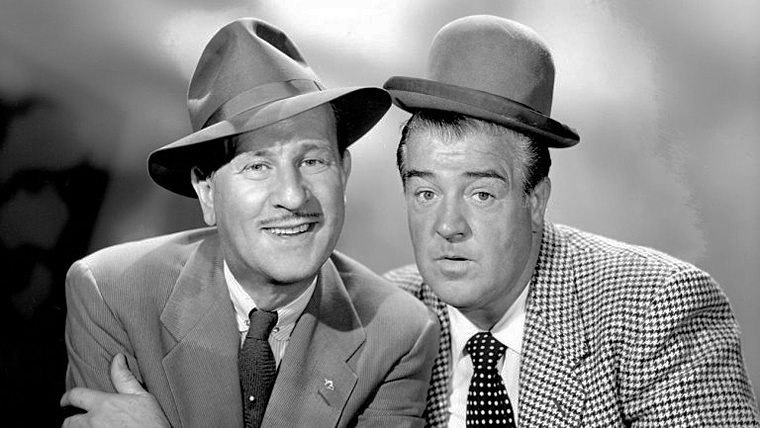
Cause and effect are so all-pervasive and unobstructed, most of the time we don’t notice it in operation. The world we enjoy (or not, as the case may be) reflects the continuity of cause and effect at work on everything, even hamburgers and ketchup.
In their classic act, Bud Abbott and Lou Costello go out to eat and Costello, ever the hapless innocent, gets a hamburger. “You want ketchup?” asks Abbott. “No thanks,” says Costello. “You don’t want ketchup?” asks Abbott, incredulously. “I don’t like ketchup,” says Costello. From here Abbott launches into a lengthy rant about the effects of rejecting ketchup, which slowly increases in intensity and effect. He talks about the rejection of tomatoes and the people who will be put out of work picking tomatoes. He talks about the ketchup factory, and the families of the workers who will not be able to eat when the breadwinner is no longer making ketchup. Abbott goes on and on with his guilt trip, talking about wailing, hungry babies until finally Costello, at this point crying and using his tie to wipe his eyes tearfully agrees to use some ketchup. “OK,” says Abbott, “now how about some mustard?” Cut!
The wisdom thinly hidden in Abbott and Costello’s vaudeville skit was not lost on me; in my youth even slapstick comedy like Laurel and Hardy helped me understand how inter-connected everything was, that a paint bucket, ladder and fire truck could all be in cahoots.
What I do affects others, and what they do affects still others, and so on ad infinitum. Cause and effect stretch back in time to no beginning, and will continue into a future of no end. In pondering this, physicists, cosmologists and systems theorists have developed various theories associated with cause and effect. From the standpoint of chaos theory, for example, cause and effect at the smallest scale can establish ripples and patterns that don’t trigger our awareness until they reach a larger scale; the subtle movement of air from the wings of a butterfly can result in a hurricane halfway across the globe. Mathematical models which consider all possible outcomes as the propagation of probability waves, the sum of all histories in the working of quantum mechanics, even the idea that nothing actually ever happens at – all have found supporters.
A decrease in consumer spending is being blamed by the mass media for our economic mess. Abbott and Costello might agree, but such blame is as absurd as their vaudeville routine. We are all complicit in the workings of the world, no more able to separate ourselves from the continuity of cause and effect than a butterfly.
We wake up in beds built with wood grown in Indonesia, assembled in China; on sheets made of cotton from the Middle East, loomed in India, packaged in Mexico. Little of what we touch, eat or use each day is the product of our own labor. The complex patterns of causality are far beyond calculation or complete understanding. There are things we like and things we don’t, situations that seem so horrible doing away with them is our first inclination. But we cannot fully know all the effects of our actions nor eliminate risk.
If you had the power to hit reality’s “delete” button, would you?